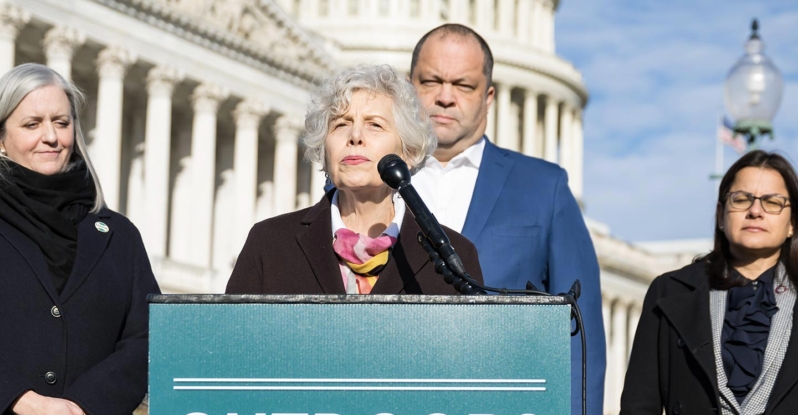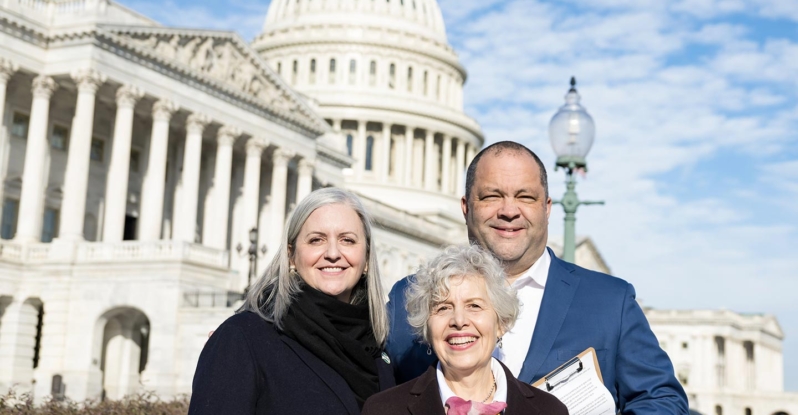Originally published on The Hill.
It may seem our current political climate is as polarized as any time since the Civil War. While it is bad, there are glimmers of sunshine among the clouds. One such ray of light came recently when Congress passed – in the Senate by a 92-8 vote and the House by 363-62 vote – and the President signed the John D. Dingell, Jr. Conservation, Management and Recreation Act, which includes permanent authorization of Land & Water Conservation Fund (LWCF), one of the most successful federal programs in the nation. Who says bipartisanship is dead?
City Parks Alliance and its bipartisan Mayors for Parks Coalition sincerely thank members of Congress for supporting this important initiative. We now encourage Congress to provide full and dedicated funding at the authorized amount of $900 million.
As heartening as it is to see real bipartisan cooperation in Washington, this legislation is notable for a much more important reason: all the good it accomplishes. Since 1964, the LWCF has supported more than 42,000 state and local parks, playgrounds, urban wildlife refuges, trails and open spaces.
Better yet, it costs taxpayers nothing. It is financed by royalties from offshore oil and gas drilling, and matched by state and local contributions. Because of that, the LWCF is a leading example of smart and effective use of federal dollars. And we all benefit from this program.
One such LWCF program, the Outdoor Recreation Legacy Partnership Program, directs funds specifically to underserved communities to create new outdoor recreation spaces and renovate existing parks and recreation centers.
As it stands, Outdoor Recreation Legacy Partnership Program is an equity triple-play. It creates new outdoor recreation for urban residents. It promotes innovative funding partnerships. And it generates jobs. We all win when we work together to make our cities better and brighter through parks.
Since 2014, Congress has funded $70 million for the program, and with a dollar-for-dollar matching requirement, that means $140 million has been directed to create or improve parks in underserved communities. On top of that, local public and private investment is bringing in millions more. The Outdoor Recreation Legacy Partnership is often just the shot in the arm needed to get important projects off the ground or to nudge underfunded parks over the finish line.
Thirty-one cities have benefitted from these funds, with a third grant announcement expected this spring. Denver is using its grant to develop a 4.5-acre open-space park on once-vacant land offering both recreation and youth science education opportunities. Portland, Ore., used a $500,000 grant to help create Thomas Cully Park located in a predominantly minority and low-income area that has limited outdoor recreation opportunities. And Madison, Wis., used a grant to build the six-acre McPike Park on a former industrial site.
Future projects include the transformation of a vacant property in Atlanta that connects an underserved neighborhood to the BeltLine trail network; the development of 13 acres of new parkland along the Delaware River waterfront to improve access for nearby distressed and underserved communities in Camden, N.J.; and the development of a new 3.5-acre park on a former industrial site along the Mississippi River in a low-income neighborhood in Minneapolis.
Vibrant communities that thrive for generations need access to parks, trails and green spaces. The LWCF, and its Outdoor Recreation Legacy Partnership Program, are smart investments in achieving this end.
Public parks and trails support public health, spur economic equity and foster community. And it is clear a fit economy and fit citizenry go hand in hand. All that remains is for Congress to seize this moment to provide LWCF with full and dedicated funding.
Michael B. Hancock is the mayor of Denver and is co-chair of the Mayors for Parks Coalition, a project of City Parks Alliance. Catherine Nagel is Executive Director of City Parks Alliance.



